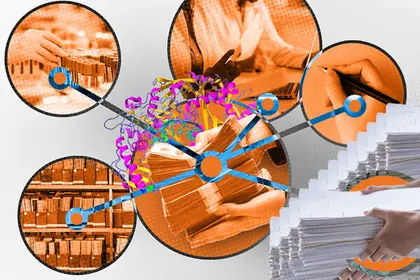T4K3.news
Scientific publishing under pressure
A Northwestern study finds widespread fraud in journals and calls for urgent reforms to protect trust in science.

A Northwestern University study reveals growing fraud in scientific journals and calls for systemic reform.
Scientific Publishing Faces Widespread Fraud
A team from Northwestern University analyzed thousands of published papers and found evidence of widespread fraud in scientific publishing. They estimate that researchers detected only 1 to 10 percent of fraudulent work, implying the true level could be 10 to 100 times higher. In fields such as microRNA research related to cancer, fraud appears to be especially prominent.
The study traces fraud to paper mills and to editors who accept questionable papers for money and prestige. The shift to online and open access created new incentives for shady operators to publish fake journals and then infiltrate legitimate ones. The researchers argue that if the problem continues, trust in science could erode. They call for collective action, stronger detection, and clear consequences for those who participate in fraud.
Key Takeaways
"But if we don’t, we’ll end up with a corrupt system."
Amaral on the stakes of not addressing fraud
"Science has become a numbers game, where people are paying more attention to metrics than the actual work."
Amaral on incentives in academia
"We need collective action to resist this trend."
Amaral on solutions
"If the number of defectors starts growing, everybody has to become a defector, otherwise they are not going to survive."
Amaral on systemic risk
The findings expose how incentives shape behavior in academia. A system that prizes publication counts can tempt a few bad actors to contaminate whole fields and drain research funding.
Reforms must be practical and targeted. Independent audits, transparent data sharing, stronger sanctions for authors and editors, and a reduced emphasis on metrics could help restore integrity without stifling genuine discovery.
Highlights
- Paper mills feed a machine of fake science
- Generative AI will accelerate fraud
- Accountability must reach editors and authors alike
- Trust in research is the currency of science
Potential political and budget impact
The report touches on trust in science and funding for research. If public concern grows, it could trigger political backlash and shifts in funding priorities.
The science enterprise must confront fraud with clear rules and real consequences.
Enjoyed this? Let your friends know!
Related News

New studies explore sunlight benefits for health

Study reveals alarming rise in scientific fraud

Fraud networks threaten trust in science

Macron acknowledges France's violence in Cameroon

Estrogen protects kidneys from ferroptosis

COVID conspiracy theories jeopardize pandemic prevention

Discovery of Hidden Water Deep in Earth's Mantle

WWF report reveals alarming wildlife population decline
